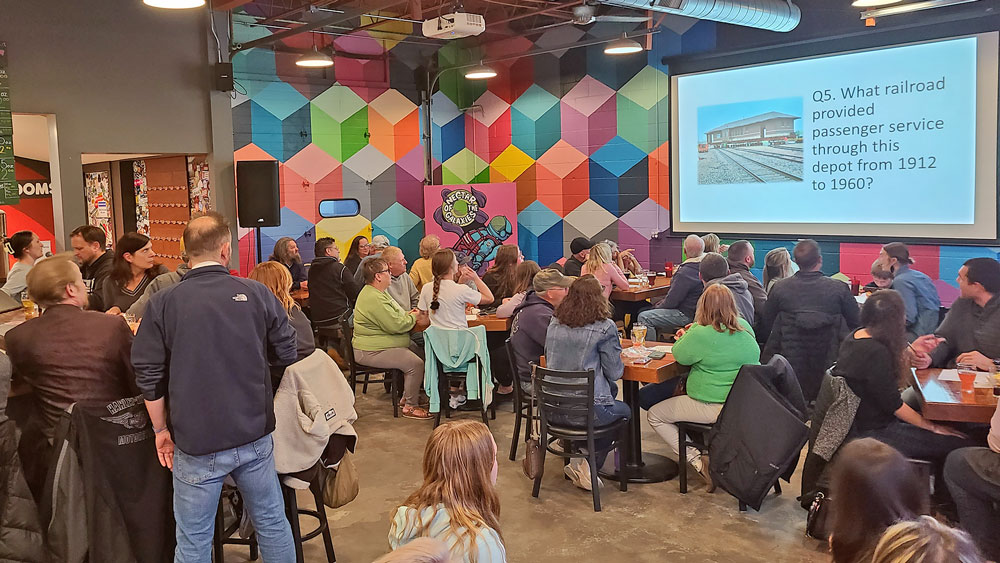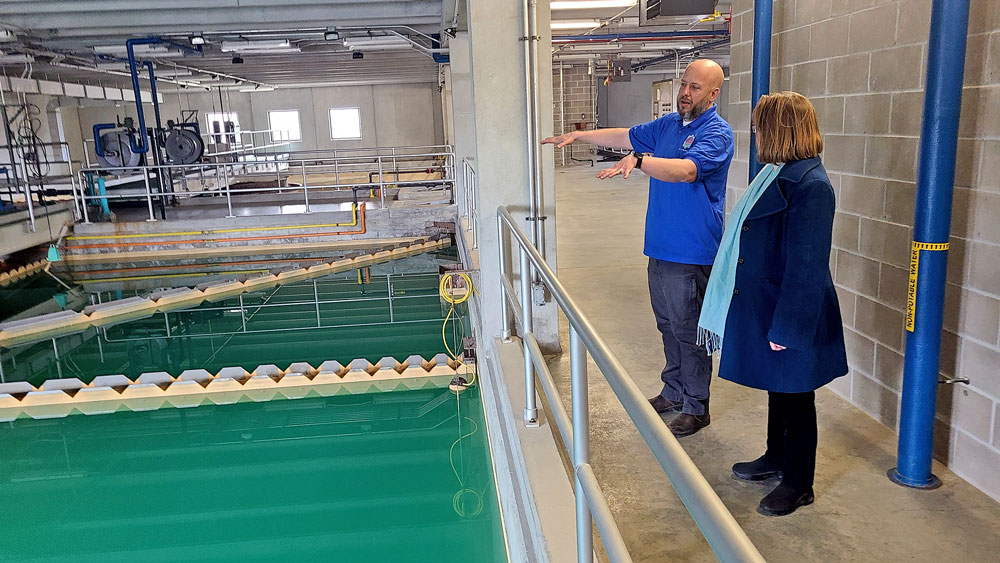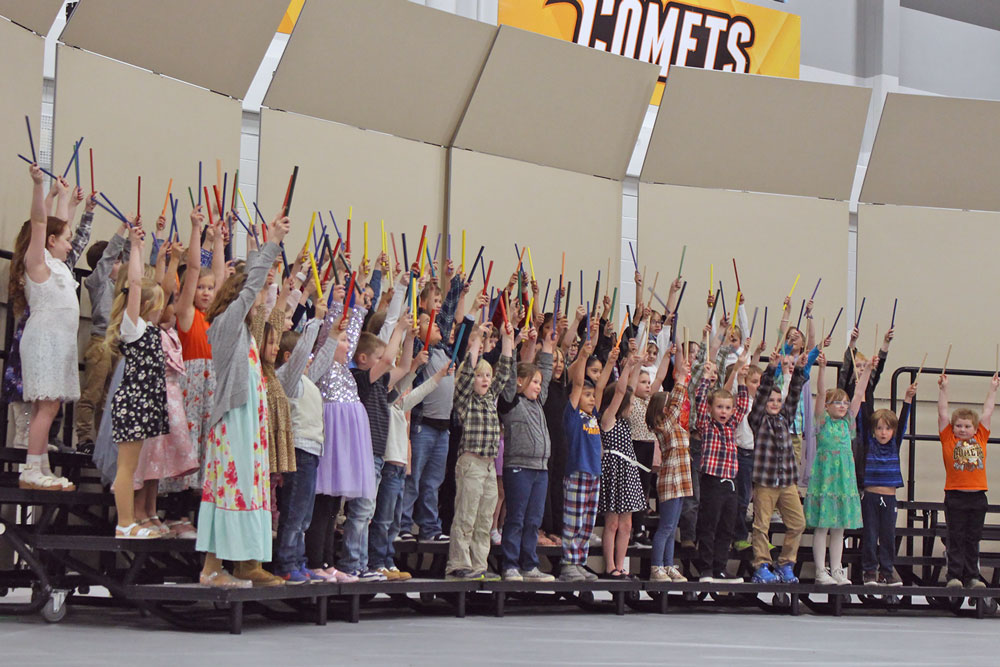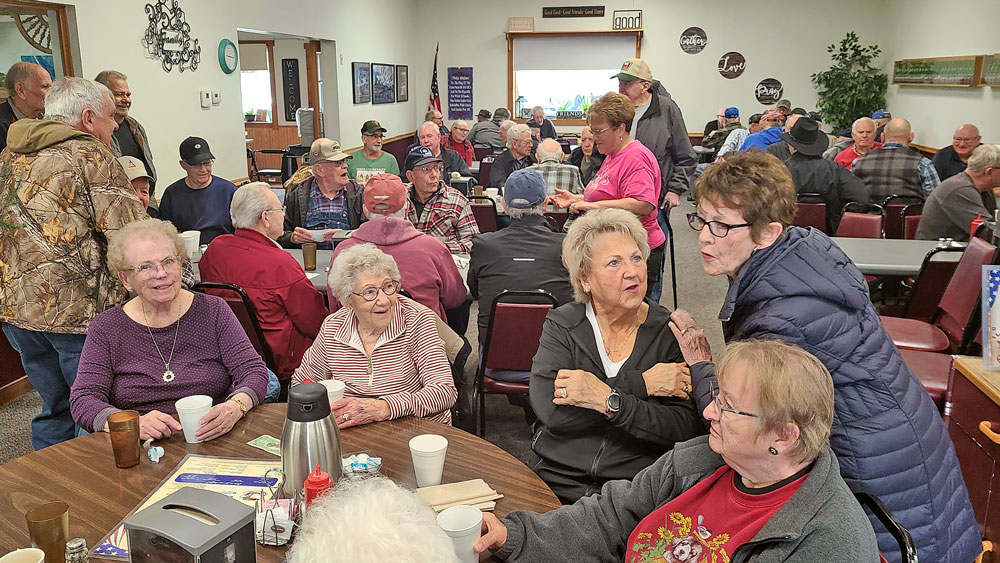Council answers questions at tax abatement hearing

By Travis Fischer, tkfischer@charlescitypress.com
The last meeting of the year for the Charles City Council received a larger audience than usual as the council held public hearings regarding tax abatements and franchise fees on Monday, Dec. 18.
After swearing in reelected council members Phillip Knighten, Phoebe Pittman, and Keith Starr for a new term, the meeting began with a public hearing about the proposed establishment of an Urban Revitalization Area in the city that would allow for the city’s proposed tax abatement program.
Designed to encourage new construction or improvements to existing properties, the tax abatement program would allow for residential property owners to receive 100% tax abatement for 10 years on projects that would increase the taxable valuation by 10% or more.
As an example, a property valued at $100,000 that undergoes a renovation that increases its assessed value by $10,000 would, barring other factors, continue to be taxed as though it were still $100,000 for 10 years for the city’s purpose.
Commercial properties would also be eligible for abatements, with a choice between three years at 100% or 10 years of a stepped abatement plan.
As part of the public notification process, the city sent out letters to property owners informing them of the proposed plan, resulting in several people attending the meeting to ask questions about the tax abatements and the council’s overall plans for future housing developments.
Many of the visitors stuck around for the next public hearing, regarding the establishment of a utility franchise fee.
With the renewal of MidAmerican Energy’s utility franchise agreement coming up for renewal, the council is looking at establishing a 5% franchise fee that would serve as a new revenue source for the city as property tax revenue continues to decline.
The franchise fee would replace the existing 1% Local Option Sales Tax fee for utilities, resulting in an overall 4% increase to consumers.
“None of us want to make anybody’s bills go up, but we still have bills to pay as a city,” said council member Phoebe Pittman.
The council explained to the visiting community members that state mandated property tax rollbacks result in property owners paying less property tax on their assessed valuation, which has had a stifling effect on city revenue.
In spite of assessed value of property in Charles City increasing by $12 million last year, the taxable value that determines city revenues dropped by $3.5 million, resulting in a loss of about $30,000 for the city budget.
By establishing a franchise fee, which spreads the expense to whoever pays the utility bill, be they a renter or homeowner, the city hopes to diversify its revenue from relying on property taxes.
“I don’t know a better way to provide the services that people are accustomed to receiving,” said council member DeLaine Freeseman. “We’ve got to have the money from someplace.”
The well attended public hearings were a welcome change of pace for the council, with members saying they appreciated being able to receive and answer questions directly from the community.
“We usually don’t get people talking to us at these public hearings,” said Mayor Dean Andrews. “It’s good when people come.”
Moving on, most of the visitors dispersed as Tim McCartan of TP Anderson & Co. presented the council with the Fiscal Year 2023 audit report.
Reviewing the city’s financial statements, balances, and record of expenditures for the year, the audit report was unremarkable, finding the city with no instances of non-compliance or questionable disbursements.
In other business, the council held the third and final reading of the ordinance that will amend the city code to allow the use of automated speeding cameras. Police Chief Hugh Anderson reported that he has no updates on when the speed cameras will be installed.
The council also approved an overall revision of the city’s traffic code, reflecting three decades worth of changes to streets and parking areas.
While most of the revisions to the traffic code are inconsequential, the city would still like to see an adjustment to the traffic lights at the intersection near Lincoln Elementary. However, that will require working through the Iowa Department of Transportation to change.
Moving on to the Street Department, the council approved the sale of the city’s old vac truck, selling the decade-old vehicle for $150,000 which will go toward the purchase of the new vac truck the city has recently taken possession of.
The council also approved a resolution to allow the city to establish a burn site for excess tree waste. Unable to get rid of the tree waste at the Shaw Avenue dump site faster than it is accumulating, the city has been looking at flood buyout property it owns south of 19th Avenue, more than a quarter-mile away from any residential homes, to use as a site where the tree waste can be disposed of.
For the moment, the site will be limited exclusively for city use, though that may change in the future.
Working toward getting rid of another city concern on Shaw Avenue, the council set a public hearing date of Jan. 17 to consider the transfer of ownership for both the city-owned home at 302 Shaw Avenue and a vacant lot at 1800 Rolfing Street.
The home, acquired by the city when it purchased land for the wastewater treatment plant expansion, has been for sale since fall of last year. Jared Hottle of the Cedar Falls/Waterloo area has contacted the city with interest in the house and, ultimately developing a plan to have a third-party contractor move the structure to a vacant lot that the city is also looking to be rid of.
“It seems like a good solution to addressing that house that’s been a bit of a burden on us,” said City Administrator Steve Diers.
Looking into next year, the council approved the preliminary plans for the 2024 Main Street Rehabilitation Project. Bid letting for the project is scheduled to take place on March 19, 2024, with a public hearing date set for April 15.
The council approved the plans and again reiterated intentions to keep Main Street property owners apprised on the timetable for when work will be done on each phase of the project.
Finally, the council approved Pay Request No. 10 for the Million Gallon Clearwell Project, authorizing a payment of $252,890 for completed work and bringing the total so far to $3,578,710.80.
While work on the portions of the project dealing with water have been suspended for the winter, some additional work may continue between now and when the project ramps up again next spring.
Finishing out city business for the year, it was noted that City Hall will be closed on Dec. 25 and 26 for Christmas. The next council workshop meeting will be scheduled for Wednesday, Janu. 3, 2024.









Social Share